- Регистрация
- 17 Февраль 2018
- Сообщения
- 28 659
- Лучшие ответы
- 0
- Баллы
- 2 093
Offline
It’s been a big year for Google…but then as the de facto leader in online search, browser, and advertising, it’s always a big year for Google. Perhaps the biggest news is undeniably tied to the company’s status as an official and illegal monopoly, according to the US Department of Justice.
While a potentially historic breakup is hanging over Google like the sword of Damocles, we won’t truly know how it ends until next year (at least). In the meantime, let’s look back at Google’s wins, losses, and WTF moments for 2024.
Fail: The US Department of Justice wants Google to sell Chrome
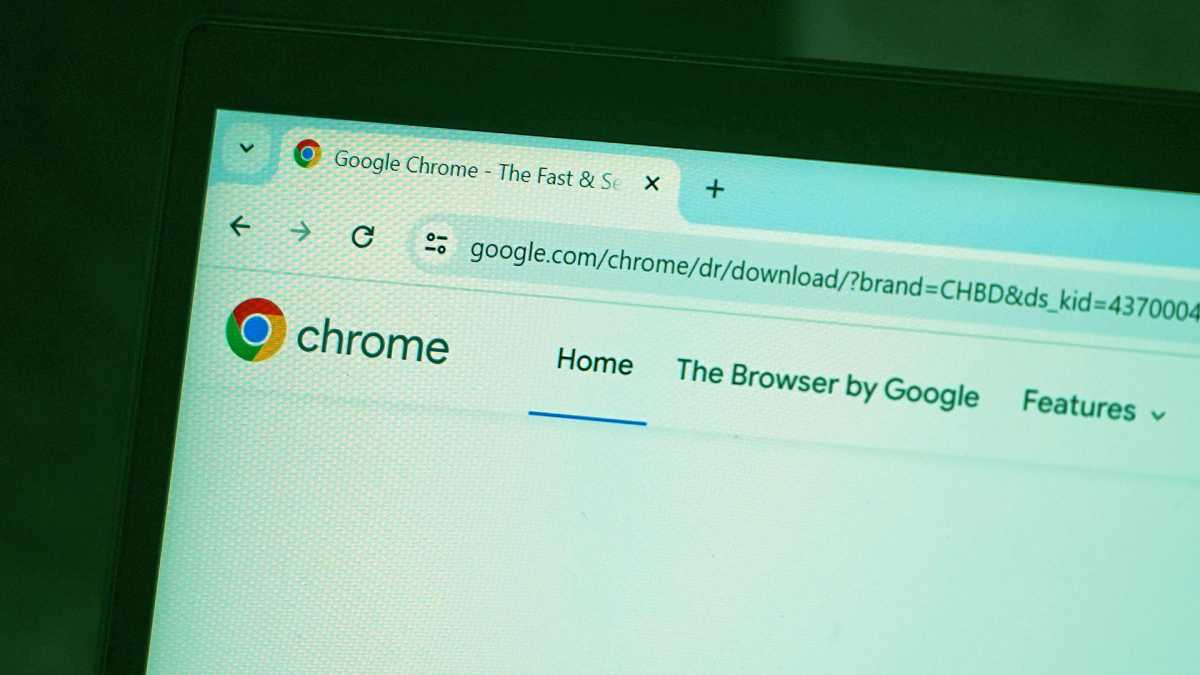
Michael Crider/Foundry
After a historic ruling that found Google guilty of violating US anti-trust laws, the Department of Justice has recommended that Google be forced to sell the part of its business that handles the Chrome browser. This is the proposed “fix” for Google’s abuse of its position dominating search and advertising all across the web, tied in with things like Android, Gmail, YouTube, and pretty much every facet of its business.
Forcing Google to break off Chrome would be devastating. Chrome is the #1 browser on the planet for both desktop (including laptops) and mobile, to say nothing of the decade-plus Google has spent trying to make Chromebooks a viable alternative to Windows-powered laptops. And that’s ignoring other proposed recompense, including a moratorium on high-dollar search contracts with companies like Apple and syndicating search data to its competitors.
But the story (which has stretched for over four years since the original indictment) is far from over. Google will undoubtedly appeal, both the judge’s guilty ruling itself and any proposed penalty, dragging the case out for months or years. And the incoming Trump administration is a huge wildcard, sure to steer the DoJ to be both friendly to America’s mega-corporations and punitive toward the technology industry to suit the president’s goals.
The outcome of the trial, whatever it is, could shake Google to the core in ways we haven’t seen since AT&T was broken up in the 1980s.
Win: The Pixel 9 series is good!
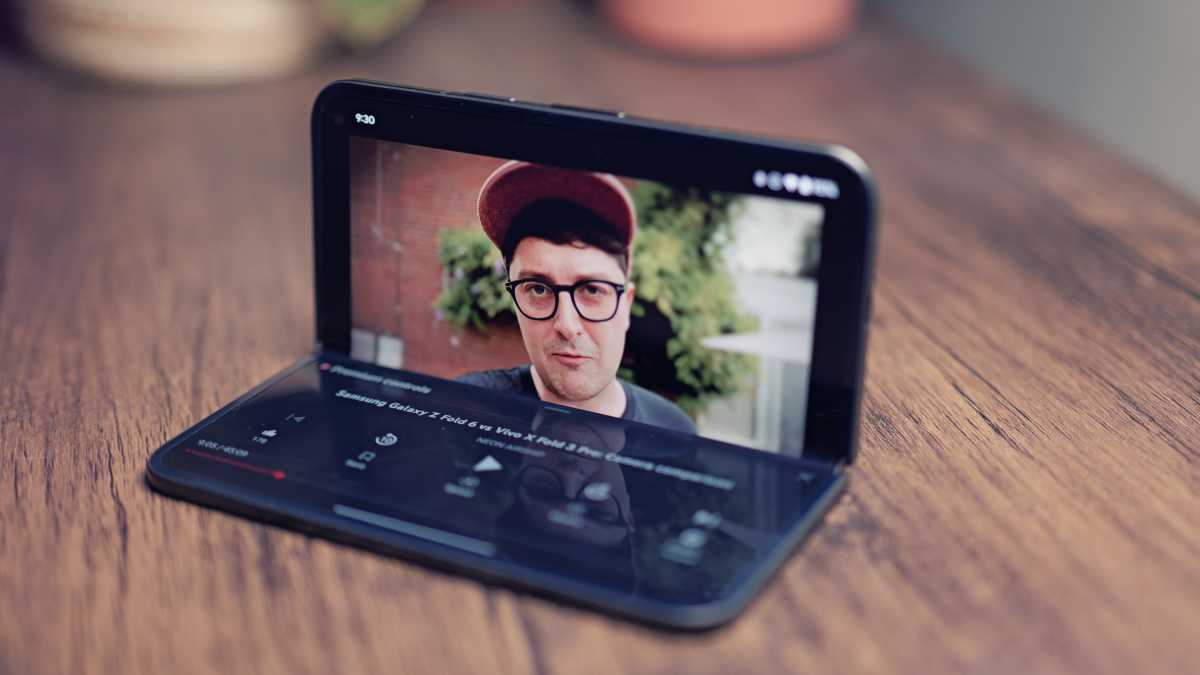
Luke Baker
Google has been trying to sell its own-branded Android phones for almost as long as Android has been around — first with the Nexus series, then evolving into a more mass-market form with the Pixel. Apple and Samsung still rule the roost in the smartphone world, but it’s undeniable that after nine iterations, the Pixel is now a force to be reckoned with.
The Pixel 8 and Pixel 9 phones are very, very good, especially if you’re hunting for a phone that takes great photos. The Pixel Fold and its horribly-named follow-up the Pixel 9 Pro Fold are also good, albeit still way too expensive for most users. The Pixel Watch 3 is good — I’m wearing it right now, and I’m very pleased with it. And there are more affordable (if not quite “budget”) alternatives in the Pixel A variant phones, which deliver almost all the same features at a far more palatable price.
It’s been a slow, ponderous process of more than a decade, but Google finally has its own phone brand that most people are familiar with, and which is distinct from Android as a platform. There are regular users — not die-hard Android fans like me — who are seeking out Pixel phones because they like them, not just because they’re in all the carrier stores (though they are). That’s a win in anyone’s book.
WTF: What the hell is Google doing with non-phone hardware?
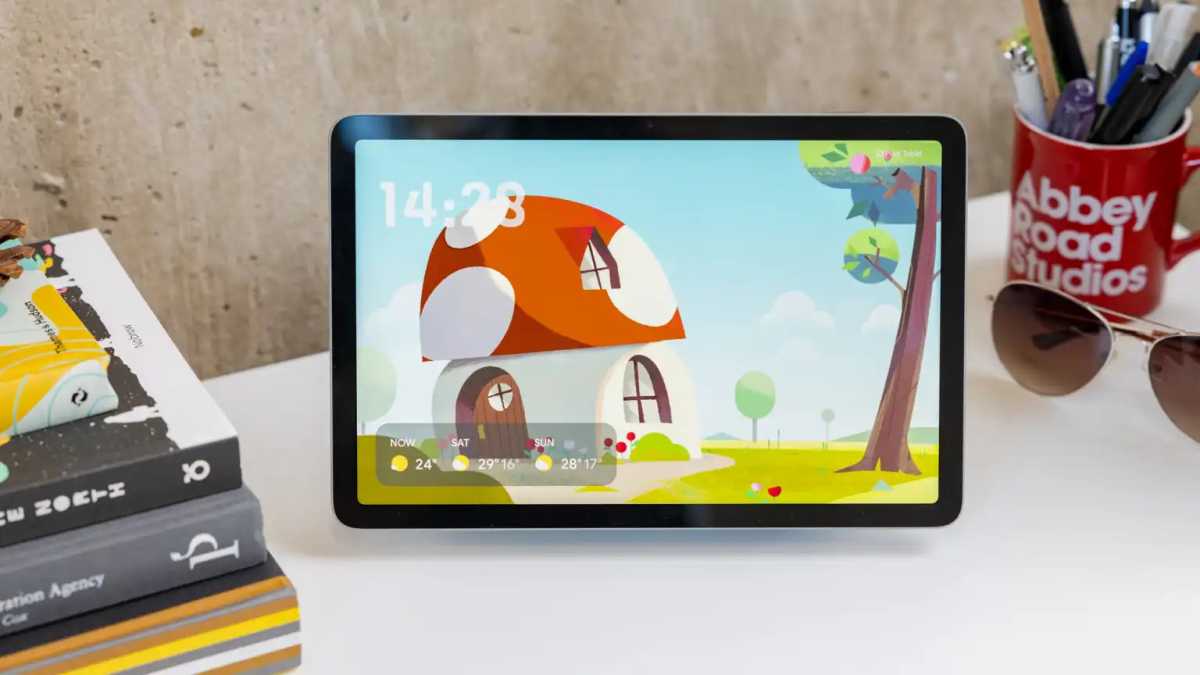
Dominik Tomaszewski / Foundry
I’ve literally bought more Google tablets than I can remember. I will always love you, Pixel C, even if Google doesn’t. But amid news of Google trying again to create a branded laptop years after closing the team that already did that, only to hear that it’s once again given up on a Pixel-branded Android tablet, I gotta ask: What the hell, man?
For all the progress that Google has made in smartphones and wearables, not to mention ChromeOS with its Chromebook partners, it seems to be as clueless as ever as to what to do with its hardware brand beyond that. Even after watching this company closely for my entire professional career, I couldn’t tell you what it’s going to do next for a tablet or a laptop.
But I can tell you what I want it to do, and what I think would be successful. Oh look at that, I have!
Fail: AI search is turning tons of people away
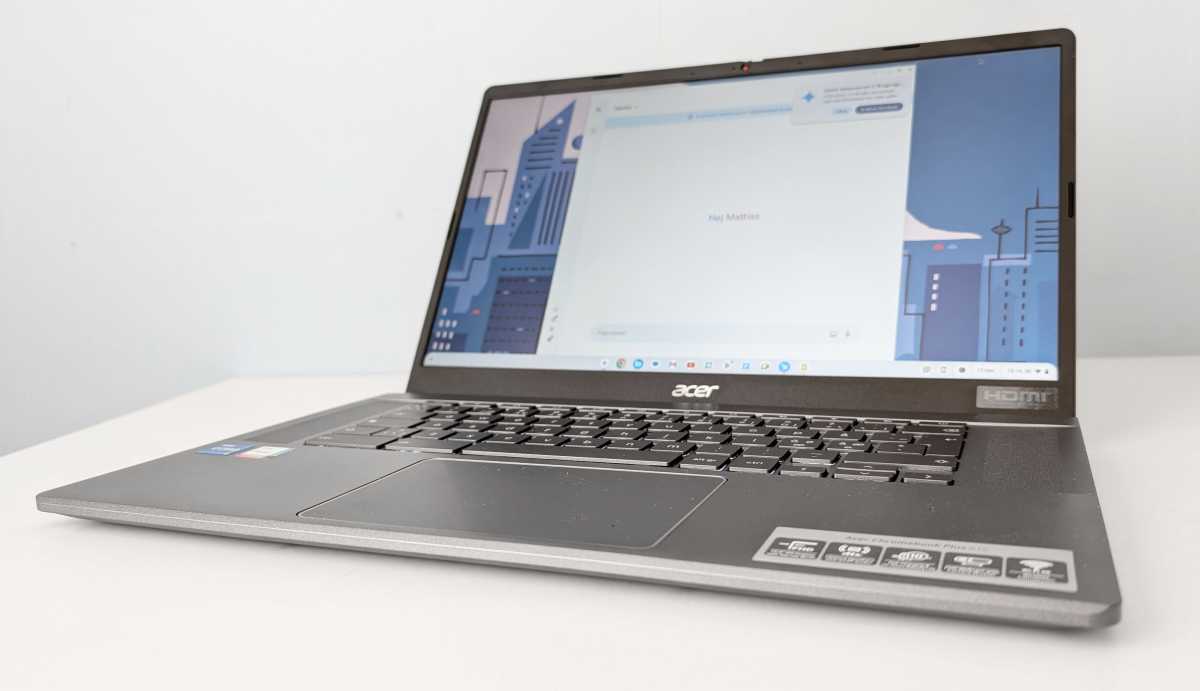
Mattias Inghe
Google is pushing hard on its Gemini AI system across its business, but it’s most immediately visible in Search. And that’s not necessarily a good thing. While the initial blowback from Google’s AI Overviews in Search (including such infamous results as using glue as a pizza topping) seem to have died down, it’s a symptom of a deeper and much more widespread problem.
Web users seem to have soured on Google, a name that used to be synonymous with search as in “let me Google that for you.” Between more and more advertising in results, and results themselves becoming far less useful as targeted SEO and AI-generated text becomes more prevalent, it’s easy to see why. Google’s dominant position isn’t going away anytime soon, but it’s clear that people are hungering and thirsting for an alternative, if not exactly a replacement.
Perhaps more daunting for Google is that it doesn’t seem to have a clear solution. Search is the bedrock of Google’s empire, and if it cracks up — with or without a one-two punch from losing Chrome — the entire company could be in danger.
Win: “Web” tab is how search should be
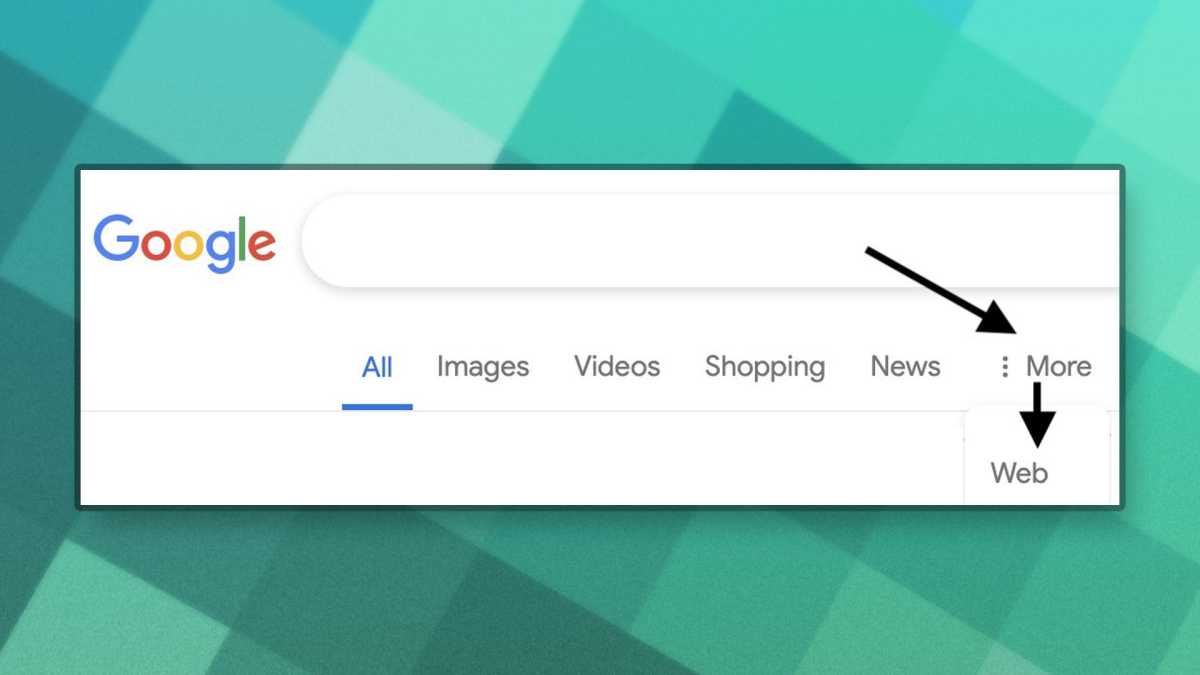
Google
For all the belly-aching that I gave Google Search in the section above, I confess that it’s so integrated into both my personal life and my workflow that I’m not ready to give it up. And I don’t have to. Google introduced a new “Web” search tab this year, and it’s almost like Google Search used to be. Almost.
Clicking “Web” will strip out the AI overview results, the don’t-call-it-advertising shopping suggestions, the Maps business listings (again, essentially advertising!). It’s ten blue links again, giving Google Search a sense of focus and intention it’s been missing for a long time. I adjusted all my default searches to this view almost immediately, and it’s been a marked improvement.
Granted, this doesn’t solve all of Search’s problems. Sometimes I want that Maps info right away, and there’s no way to pick-and-choose which bits you get, it’s All or (not quite) nothing. The Web view still periodically serves up alleged search results that are “Sponsored” — again, ads — right at the top, forcing you to scroll to get more organic info. And this view can’t do anything about junk SEO or AI-generated text, both of which make searching for genuine information far harder.
But it’s an improvement. And it feels like a long time since I’ve been able to say that about Google Search.
WTF: Google can auto-generated video games

Google
I feel like I constantly have to remind people that what they’re being sold as “AI” is not artificial intelligence in the sci-fi sense, a la Commander Data or HAL 9000. But darn it if that isn’t hard to keep in mind when you see some of the things these models can do, like create simple but complete video games from just a prompt.
I don’t mean “code a game that’s kind of like the original Zelda.” I mean full games with 3D movement and graphics that are generated on the fly, no polygons necessary. The Genie 2 system has apparently analyzed so many video games that it can generate basic playable systems, including what looks like physics interaction and multiple viewpoints.
Granted, we only have Google’s word for it. And as impressive as the results are (or at least the videos Google deigns to share), there’s no way the juice is worth the squeeze in terms of computing resources. But I could see this kind of system giving the tools to make simple games to kids and the non-tech-savvy, a step or two above RPG Maker or Dreams on the PS4, in a very cool way.
Fail: Chrome users rebel after ad-blocker fiasco
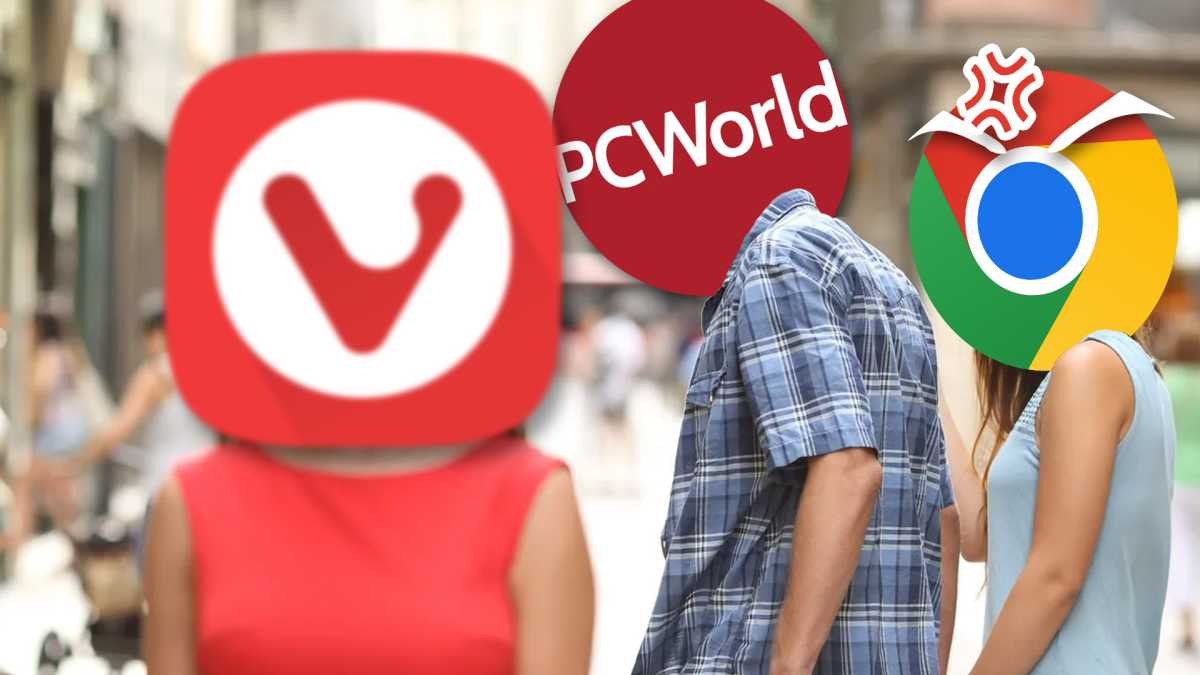
Google/Vivaldi
As if Google didn’t have enough to worry about from alienating regular search users, it’s also managed to piss off power users with a shift to a new series of Chrome extension guidelines. Manifest V3 seems specifically targeted to hamstring ad-blockers — an implication, if not a direct allegation, from more than one ad-blocker developer — among other more laudable goals.
And users are taking note. While most extensions are updating to bend the knee, the developer of the popular uBlock Origin refused, instead creating a separate and deliberately less powerful alternative as a means of demonstrative protest. As some form of ad-blocking becomes almost essential for using the web both efficiently and safely, alternative browsers are suddenly on the rise.
I can’t claim objectivity here, as I bid adieu to Chrome after using it for over a decade in favor of the far more customizable Vivaldi. But Vivaldi, like almost every browser from a small company or development team, is based on Chromium. The only notable exception is Firefox. If there’s a reckoning for browsers on the horizon, it’ll have to go through Google first…at least if Google still controls Chrome at that point.
Win: Google could combine ChromeOS and Android
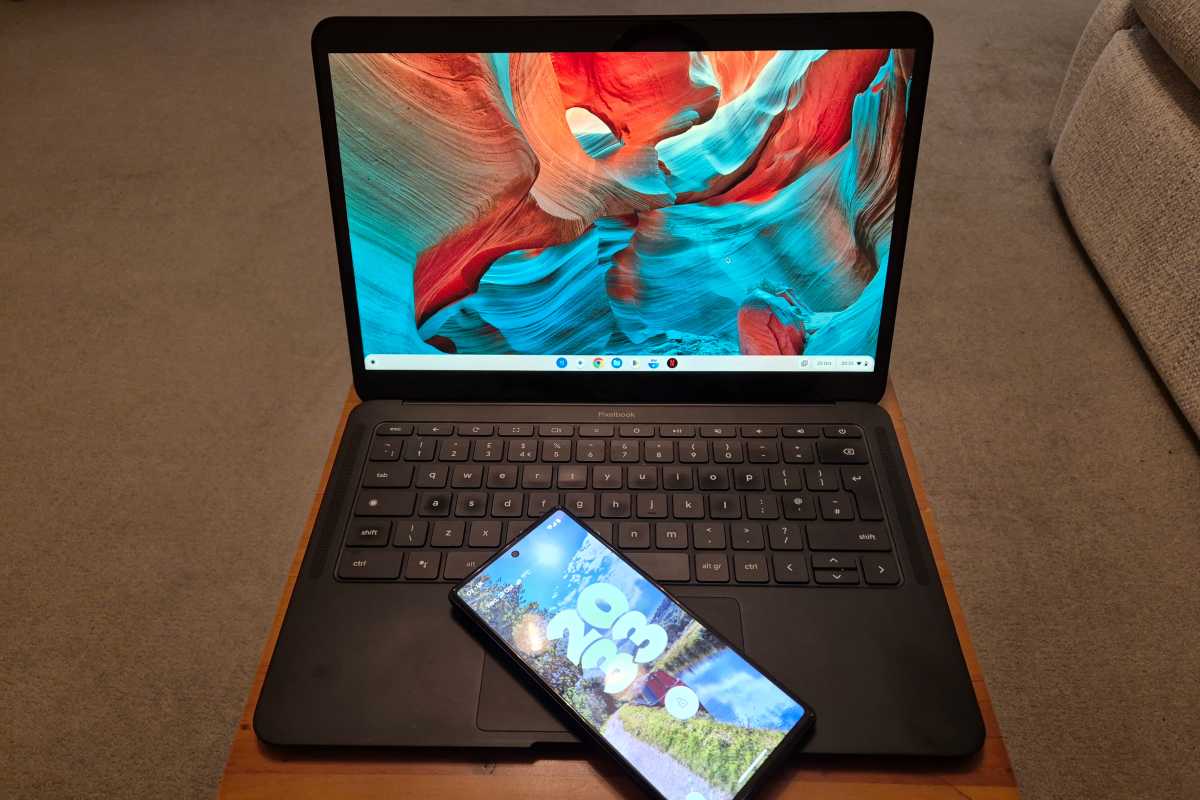
Dave Parrack / IDG
With that huge uncertainty hanging over Google’s continued control of Chrome, there was a story that broke and gave us reason to celebrate. Google is, apparently, working on a new version of ChromeOS that uses Android as a base. ChromeOS and Android already have a lot in common — they’re both open-source operating systems maintained by Google, after all — but moving them closer could solve a lot of problems.
Chromebooks could handle Android apps much more fluently and gracefully. That, in turn, would make ChromeOS tablets (a small but important part of the market) better all-around. On the flip side, it could give Android a much better way of handling multitasking on tablets, something that it’s not great at right now, and one of many reasons that the iPad kicks its butt in almost every metric.
Android and ChromeOS both have long histories of being more or less distinct products unified by Google’s ecosystem…and that ecosystem isn’t great. But moving them closer together could go a long way towards fixing that, and making Google a more integrated alternative to both Microsoft and Apple. Granted, all of this is extremely tentative in more ways than one.
WTF: Russia fines Google more money than exists in the world

New Line Cinema
Alright, you’ve got to admit this one’s funny. As a result of the Russian government’s crackdown on social media and some very bad math, a court has ordered Google to pay two undecillion rubles, the equivalent of 20,000,000,000,000,000,000,000,000,000,000,000 US dollars, in fines. Probably a lot more by this point.
The details of how and why are hardly important, since that’s more than a hundred trillion times the amount of money that exists on the planet, in all currencies, everywhere. Though Google still serves most of its products to Russian residents, its business operations in the country have shut down in the wake of Russia’s invasion of Ukraine.
The odds of Google ever being forced to pay even a tiny, tiny portion of that ludicrous sum are about, hmmm, I’d say two undecillion to one.
While a potentially historic breakup is hanging over Google like the sword of Damocles, we won’t truly know how it ends until next year (at least). In the meantime, let’s look back at Google’s wins, losses, and WTF moments for 2024.
Fail: The US Department of Justice wants Google to sell Chrome

Michael Crider/Foundry
After a historic ruling that found Google guilty of violating US anti-trust laws, the Department of Justice has recommended that Google be forced to sell the part of its business that handles the Chrome browser. This is the proposed “fix” for Google’s abuse of its position dominating search and advertising all across the web, tied in with things like Android, Gmail, YouTube, and pretty much every facet of its business.
Forcing Google to break off Chrome would be devastating. Chrome is the #1 browser on the planet for both desktop (including laptops) and mobile, to say nothing of the decade-plus Google has spent trying to make Chromebooks a viable alternative to Windows-powered laptops. And that’s ignoring other proposed recompense, including a moratorium on high-dollar search contracts with companies like Apple and syndicating search data to its competitors.
But the story (which has stretched for over four years since the original indictment) is far from over. Google will undoubtedly appeal, both the judge’s guilty ruling itself and any proposed penalty, dragging the case out for months or years. And the incoming Trump administration is a huge wildcard, sure to steer the DoJ to be both friendly to America’s mega-corporations and punitive toward the technology industry to suit the president’s goals.
The outcome of the trial, whatever it is, could shake Google to the core in ways we haven’t seen since AT&T was broken up in the 1980s.
Win: The Pixel 9 series is good!
Luke Baker
Google has been trying to sell its own-branded Android phones for almost as long as Android has been around — first with the Nexus series, then evolving into a more mass-market form with the Pixel. Apple and Samsung still rule the roost in the smartphone world, but it’s undeniable that after nine iterations, the Pixel is now a force to be reckoned with.
The Pixel 8 and Pixel 9 phones are very, very good, especially if you’re hunting for a phone that takes great photos. The Pixel Fold and its horribly-named follow-up the Pixel 9 Pro Fold are also good, albeit still way too expensive for most users. The Pixel Watch 3 is good — I’m wearing it right now, and I’m very pleased with it. And there are more affordable (if not quite “budget”) alternatives in the Pixel A variant phones, which deliver almost all the same features at a far more palatable price.
It’s been a slow, ponderous process of more than a decade, but Google finally has its own phone brand that most people are familiar with, and which is distinct from Android as a platform. There are regular users — not die-hard Android fans like me — who are seeking out Pixel phones because they like them, not just because they’re in all the carrier stores (though they are). That’s a win in anyone’s book.
WTF: What the hell is Google doing with non-phone hardware?
Dominik Tomaszewski / Foundry
I’ve literally bought more Google tablets than I can remember. I will always love you, Pixel C, even if Google doesn’t. But amid news of Google trying again to create a branded laptop years after closing the team that already did that, only to hear that it’s once again given up on a Pixel-branded Android tablet, I gotta ask: What the hell, man?
For all the progress that Google has made in smartphones and wearables, not to mention ChromeOS with its Chromebook partners, it seems to be as clueless as ever as to what to do with its hardware brand beyond that. Even after watching this company closely for my entire professional career, I couldn’t tell you what it’s going to do next for a tablet or a laptop.
But I can tell you what I want it to do, and what I think would be successful. Oh look at that, I have!
Fail: AI search is turning tons of people away

Mattias Inghe
Google is pushing hard on its Gemini AI system across its business, but it’s most immediately visible in Search. And that’s not necessarily a good thing. While the initial blowback from Google’s AI Overviews in Search (including such infamous results as using glue as a pizza topping) seem to have died down, it’s a symptom of a deeper and much more widespread problem.
Web users seem to have soured on Google, a name that used to be synonymous with search as in “let me Google that for you.” Between more and more advertising in results, and results themselves becoming far less useful as targeted SEO and AI-generated text becomes more prevalent, it’s easy to see why. Google’s dominant position isn’t going away anytime soon, but it’s clear that people are hungering and thirsting for an alternative, if not exactly a replacement.
Perhaps more daunting for Google is that it doesn’t seem to have a clear solution. Search is the bedrock of Google’s empire, and if it cracks up — with or without a one-two punch from losing Chrome — the entire company could be in danger.
Win: “Web” tab is how search should be

For all the belly-aching that I gave Google Search in the section above, I confess that it’s so integrated into both my personal life and my workflow that I’m not ready to give it up. And I don’t have to. Google introduced a new “Web” search tab this year, and it’s almost like Google Search used to be. Almost.
Clicking “Web” will strip out the AI overview results, the don’t-call-it-advertising shopping suggestions, the Maps business listings (again, essentially advertising!). It’s ten blue links again, giving Google Search a sense of focus and intention it’s been missing for a long time. I adjusted all my default searches to this view almost immediately, and it’s been a marked improvement.
Granted, this doesn’t solve all of Search’s problems. Sometimes I want that Maps info right away, and there’s no way to pick-and-choose which bits you get, it’s All or (not quite) nothing. The Web view still periodically serves up alleged search results that are “Sponsored” — again, ads — right at the top, forcing you to scroll to get more organic info. And this view can’t do anything about junk SEO or AI-generated text, both of which make searching for genuine information far harder.
But it’s an improvement. And it feels like a long time since I’ve been able to say that about Google Search.
WTF: Google can auto-generated video games

I feel like I constantly have to remind people that what they’re being sold as “AI” is not artificial intelligence in the sci-fi sense, a la Commander Data or HAL 9000. But darn it if that isn’t hard to keep in mind when you see some of the things these models can do, like create simple but complete video games from just a prompt.
I don’t mean “code a game that’s kind of like the original Zelda.” I mean full games with 3D movement and graphics that are generated on the fly, no polygons necessary. The Genie 2 system has apparently analyzed so many video games that it can generate basic playable systems, including what looks like physics interaction and multiple viewpoints.
Granted, we only have Google’s word for it. And as impressive as the results are (or at least the videos Google deigns to share), there’s no way the juice is worth the squeeze in terms of computing resources. But I could see this kind of system giving the tools to make simple games to kids and the non-tech-savvy, a step or two above RPG Maker or Dreams on the PS4, in a very cool way.
Fail: Chrome users rebel after ad-blocker fiasco

Google/Vivaldi
As if Google didn’t have enough to worry about from alienating regular search users, it’s also managed to piss off power users with a shift to a new series of Chrome extension guidelines. Manifest V3 seems specifically targeted to hamstring ad-blockers — an implication, if not a direct allegation, from more than one ad-blocker developer — among other more laudable goals.
And users are taking note. While most extensions are updating to bend the knee, the developer of the popular uBlock Origin refused, instead creating a separate and deliberately less powerful alternative as a means of demonstrative protest. As some form of ad-blocking becomes almost essential for using the web both efficiently and safely, alternative browsers are suddenly on the rise.
I can’t claim objectivity here, as I bid adieu to Chrome after using it for over a decade in favor of the far more customizable Vivaldi. But Vivaldi, like almost every browser from a small company or development team, is based on Chromium. The only notable exception is Firefox. If there’s a reckoning for browsers on the horizon, it’ll have to go through Google first…at least if Google still controls Chrome at that point.
Win: Google could combine ChromeOS and Android

Dave Parrack / IDG
With that huge uncertainty hanging over Google’s continued control of Chrome, there was a story that broke and gave us reason to celebrate. Google is, apparently, working on a new version of ChromeOS that uses Android as a base. ChromeOS and Android already have a lot in common — they’re both open-source operating systems maintained by Google, after all — but moving them closer could solve a lot of problems.
Chromebooks could handle Android apps much more fluently and gracefully. That, in turn, would make ChromeOS tablets (a small but important part of the market) better all-around. On the flip side, it could give Android a much better way of handling multitasking on tablets, something that it’s not great at right now, and one of many reasons that the iPad kicks its butt in almost every metric.
Android and ChromeOS both have long histories of being more or less distinct products unified by Google’s ecosystem…and that ecosystem isn’t great. But moving them closer together could go a long way towards fixing that, and making Google a more integrated alternative to both Microsoft and Apple. Granted, all of this is extremely tentative in more ways than one.
WTF: Russia fines Google more money than exists in the world

New Line Cinema
Alright, you’ve got to admit this one’s funny. As a result of the Russian government’s crackdown on social media and some very bad math, a court has ordered Google to pay two undecillion rubles, the equivalent of 20,000,000,000,000,000,000,000,000,000,000,000 US dollars, in fines. Probably a lot more by this point.
The details of how and why are hardly important, since that’s more than a hundred trillion times the amount of money that exists on the planet, in all currencies, everywhere. Though Google still serves most of its products to Russian residents, its business operations in the country have shut down in the wake of Russia’s invasion of Ukraine.
The odds of Google ever being forced to pay even a tiny, tiny portion of that ludicrous sum are about, hmmm, I’d say two undecillion to one.
